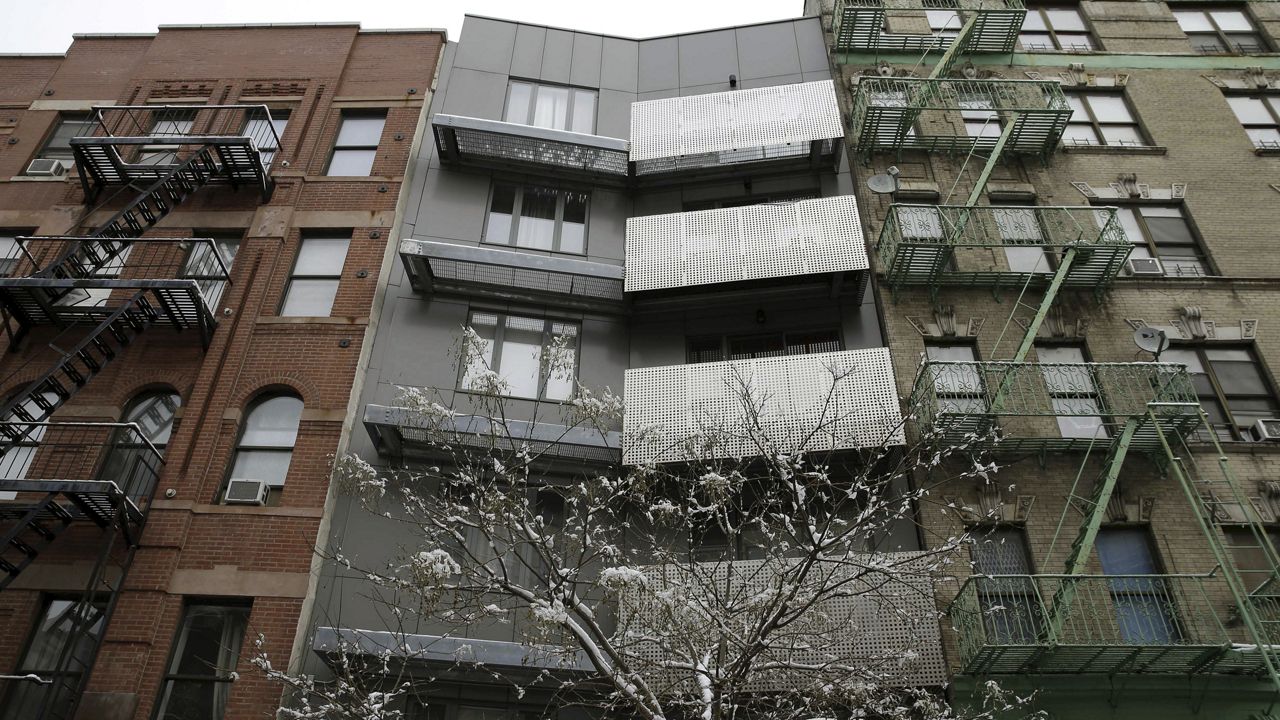The U.S. Supreme Court has rejected a bid to hear two cases challenging New York City’s rent stabilization laws.
City landlords who filed the petitions had asked the justices to overturn the laws, which cap rent hikes and make it harder to evict tenants. The court, however, denied the petitions Tuesday, meaning the city’s existing rent laws will stand.
What You Need To Know
- The U.S. Supreme Court has rejected a bid to hear two cases challenging New York City’s rent stabilization laws
- New York City landlords who filed the petitions had asked the justices to overturn the laws, which cap rent hikes and make it harder to evict tenants
- Both Mayor Eric Adams and Gov. Kathy Hochul lauded the decision, with Adams saying tenants could "breathe a sigh of relief"
In a statement accompanying the decision, Justice Clarence Thomas noted that a ruling would have affected approximately 1 million rental apartments in the five boroughs.
Owners of both apartment buildings and individual units had appealed lower court rulings that found the price and eviction controls did not violate what is known as the "Takings Clause" of the U.S. Constitution's Fifth Amendment, which bars the government from taking property without compensating owners.
In a statement released Tuesday, Mayor Eric Adams threw his support behind the decision.
“For 50 years, rent stabilization has kept rents affordable for millions of New Yorkers and their families,” Adams said. “Today, tenants can breathe a sigh of relief.”
In her own statement, Gov. Kathy Hochul said she was “relieved” by the decision.
“Our rent stabilization laws, which were first passed nearly six decades ago and reaffirmed consistently by lower courts since, remain some of our state’s most powerful tools to fight inequality, preserve affordability, and keep New Yorkers safely housed in their own communities,” she said.
Housing advocates also lauded the denial notice, with Cea Weaver, campaign coordinator of the statewide advocacy coalition Housing Justice for All, releasing a statement saying it “confirmed what we’ve known all along: rent stabilization is here to stay.”
“The decision from the Supreme Court to deny certification sends a clear message to the real estate industry: No matter how hard they try to undermine rent stabilization behind the scenes, rent stabilized tenants are organized and will continue to fight for their homes — in the courts, in Albany, and every day in tenant unions in their neighborhoods,” Weaver said.








_PKG_Hudson_Yards_Zoning_Hearing_CG)